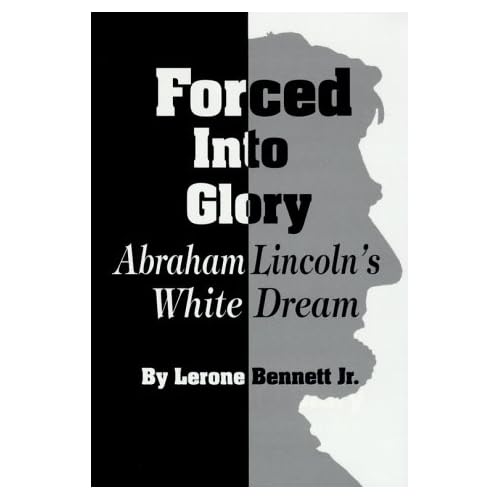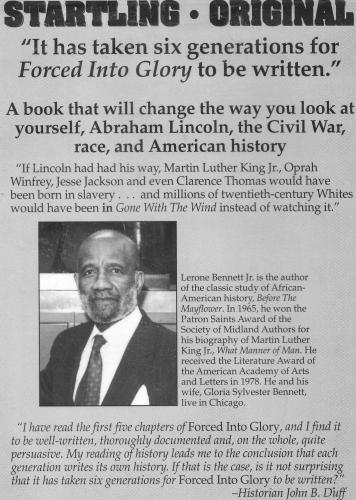Re: African American History Month Thread
The Martin Luther King You Don't See on TV
By Jeff Cohen and Norman Solomon
Wednesday 04 April 2007
It's become a TV ritual: Every year on April 4, as
Americans commemorate Martin Luther King's death, we
get perfunctory network news reports about "the slain
civil rights leader."
The remarkable thing about these reviews of King's
life is that several years - his last years - are
totally missing, as if flushed down a memory hole.
What TV viewers see is a closed loop of familiar
file footage: King battling segregation in Birmingham
(1963); reciting his dream of racial harmony at the
rally in Washington (1963); marching for voting rights
in Selma, Alabama (1965); and finally, lying dead on
the motel balcony in Memphis (1968).
An alert viewer might notice that the chronology
jumps from 1965 to 1968. Yet King didn't take a
sabbatical near the end of his life. In fact, he was
speaking and organizing as diligently as ever.
Almost all of those speeches were filmed or taped.
But they're not shown today on TV.
Why?
It's because national news media have never come
to terms with what Martin Luther King Jr. stood for
during his final years.
In the early 1960s, when King focused his
challenge on legalized racial discrimination in the
South, most major media were his allies. Network TV
and national publications graphically showed the
police dogs and bullwhips and cattle prods used
against Southern blacks who sought the right to vote
or [the right] to eat at a public lunch counter.
But after passage of civil rights acts in 1964 and
1965, King began challenging the nation's fundamental
priorities. He maintained that civil rights laws were
empty without "human rights" - including economic
rights. For people too poor to eat at a restaurant or
afford a decent home, King said, anti-discrimination
laws were hollow.
Noting that a majority of Americans below the
poverty line were white, King developed a class
perspective. He decried the huge income gaps between
rich and poor, and called for "radical changes in the
structure of our society" to redistribute wealth and
power.
"True compassion," King declared, "is more than
flinging a coin to a beggar; it comes to see that an
edifice which produces beggars needs restructuring."
By 1967, King had also become the country's most
prominent opponent of the Vietnam War, and a staunch
critic of overall US foreign policy, which he deemed
militaristic. In his "Beyond Vietnam" speech delivered
at New York's Riverside Church on April 4, 1967 - a
year to the day before he was murdered - King called
the United States "the greatest purveyor of violence
in the world today." ( Full text/audio here.)
From Vietnam to South Africa to Latin America,
King said, the US was "on the wrong side of a world
revolution." King questioned "our alliance with the
landed gentry of Latin America," and asked why the US
was suppressing revolutions "of the shirtless and
barefoot people" in the Third World, instead of
supporting them.
In foreign policy, King also offered an economic
critique, complaining about "capitalists of the West
investing huge sums of money in Asia, Africa and South
America, only to take the profits out with no concern
for the social betterment of the countries."
You haven't heard the "Beyond Vietnam" speech on
network news retrospectives, but national media heard
it loud and clear back in 1967 - and loudly denounced
it. Time magazine called it "demagogic slander that
sounded like a script for Radio Hanoi." The Washington
Post patronized that "King has diminished his
usefulness to his cause, his country, his people."
In his last months, King was organizing the most
militant project of his life: the Poor People's
Campaign. He crisscrossed the country to assemble "a
multiracial army of the poor" that would descend on
Washington - engaging in nonviolent civil disobedience
at the Capitol, if need be - until Congress enacted a
poor people's bill of rights. Reader's Digest warned
of an "insurrection."
King's economic bill of rights called for massive
government jobs programs to rebuild America's cities.
He saw a crying need to confront a Congress that had
demonstrated its "hostility to the poor" -
appropriating "military funds with alacrity and
generosity," but providing "poverty funds with
miserliness."
How familiar that sounds today, nearly 40 years
after King's efforts on behalf of the poor people's
mobilization were cut short by an assassin's bullet.
In 2007, in this nation of immense wealth, the
White House and most in Congress continue to accept
the perpetuation of poverty. They fund foreign wars
with "alacrity and generosity," while being miserly in
dispensing funds for education and health care and
environmental cleanup.
And those priorities are largely unquestioned by
mainstream media. No surprise that they tell us so
little about the last years of Martin Luther King's
life.
Jeff Cohen is the author of " Cable News
Confidential: My Misadventures in Corporate Media."
Norman Solomon's book, "War Made Easy: How
Presidents and Pundits Keep Spinning Us to Death," is
out in paperback. For information, go to:
www.normansolomon.com.












